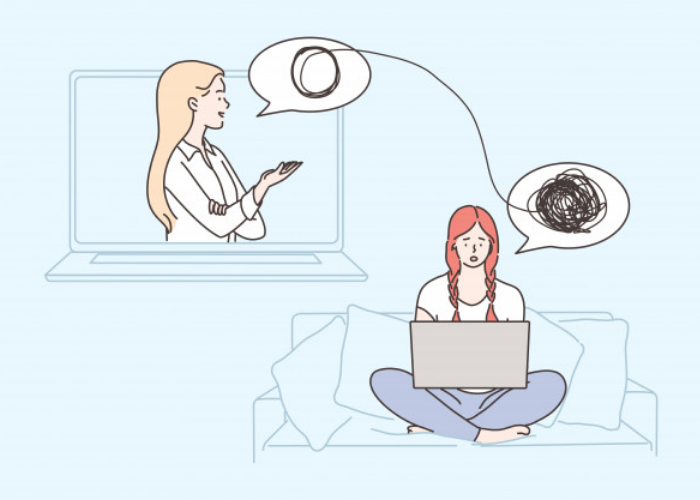
“COVID-19 has interrupted essential mental health services around the world just when they’re needed most. World leaders must move fast and decisively to invest more in life-saving mental health programmes ̶ during the pandemic and beyond.”
– Dr. Tedros Adhanom Ghebreyesus, Director-General of the World Health Organization
India’s mental health situation is dier with 7.5% of the population suffering from some form of mental disorder, according to the World Health Organisation (WHO). A recent National Mental Health Survey revealed that 150 million Indians required “active intervention”. This was well before the pandemic hit in 2020. Now, with being isolated at home without daily social interactions, losing loved ones, and fearing for their families’ safety and their own, India’s mental health is taking a large hit.
People struggling with anxiety, stress, or depression can be very lonely. This is primarily because of the stigma around mental health, is considered weak and unable to cope with these rising feelings and the constant thought that there is something wrong with their feelings. Asking for help can be a big step for people with these mental health disorders. Lockdowns and pandemics do not help seek psychologists and psychiatrists for mental health support.
Currently, when every other person has a phone and access to the internet, technology has brought healthcare professionals directly into homes, virtually, of course. Telepractice or telehealth is the delivery of health care services by health care professionals where distance is a critical factor, through using information and communication technologies (ICT) for the information of valid and correct information. It links health care professionals to those with ailments for assessment, intervention, or consultation. Remote care reduces the use of resources in health centers, improves access to care while minimizing the risk of transmitting infections from person to person, thereby making it safe for patients and health workers. Exactly a year ago, India saw a 500% increase in online consultation for healthcare between March and May, according to a report by an online healthcare portal. While people are getting their physical and physiological ailments taken care of, platforms have also supported those who need mental health support. Unfortunately, the priority given to mental health in India is still not sufficient.
According to a study on mental health implications of Covid-19 and India’s response, mental health issues are highly complex and challenging in India. This is due to a large proportion of the socially and economically vulnerable population, high burden of pre-existing mental illness, constrained mental health services infrastructure, less penetration of digital mental health solutions, amongst others. Even though efforts have been taken for intervention through telepsychiatry consultations and toll-free numbers for psychological issues, the reach is not enough. Thankfully, there is some respite through some digital platforms where psychologists and psychiatrists can utilize in helping those with mental health issues.
Q-global™ is one such platform. Pearson’s online or web-based system for test administration, scoring, and reporting was launched in India and the subcontinent. This digital platform is one of the only mental health assessment platforms available for psychologists and psychiatrists to take their practice a step towards providing universal mental healthcare. This assessment tool can be accessed from any computer which is connected to the internet. Telepractice, especially for those with mental health disorders, can greatly benefit due to its convenience, reliability, privacy, affordability, and accessibility, amongst other things.
Telepractice with good access and reach has the potential to save India’s looming mental health issues which is just as important as the strategies being devised to control the spread of the pandemic at population scale.




